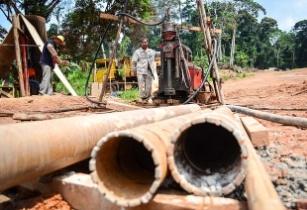Eni and the Food and Agriculture Organisation (FAO) have signed a collaboration agreement to foster access to safe and clean water in Nigeria by drilling boreholes powered with photovoltaic systems, both for domestic use and irrigation purposes
The project aims to contribute to the humanitarian interventions for internally displaced persons (IDPs) and host communities, suffering from the North East - Lake Chad crisis, which have led to unprecedented levels of population displacements and disruption of agricultural, livestock and fishing activities.
Within this project, FAO will provide support in identifying the areas of intervention for the wells as well as technical expertise and know-how in the targeted areas, whereas Eni will drill the boreholes and provide them with photovoltaic power systems, including training for their use and maintenance for long term sustainability.
The collaboration addresses Nigeria’s federal government’s request to oil and gas companies to provide support in alleviating the sufferings of the victims of insurgency in the North East region, by launching sustainable intervention programmes that will have a positive impact on the lives of affected communities.
The project is aligned to the ‘The Buhari Plan-Rebuilding the North East’ for comprehensive humanitarian relief and socio-economic stabilization of the North-East region.
Suffyan Koroma, FAO country representative to Nigeria and ECOWAS, commended the federal government’s initiative and said that the approach will support the efforts to rebuild livelihoods in the region, paving way for intervention strategies to cascade from humanitarian to development nexus, as the insurgency ebbs out.
He said, “The Northeast is not strange to FAO, our interventions in Borno, Yobe and Adamawa, the three states most affected by the Boko Haram insurgency, has helped Internally Displaced Persons (IDPs), in camps and those returning to liberated communities, including host communities, to return to their farms and pick up the bits and pieces of their lives again.”
Alberto Piatti, executive vice-president for responsible and sustainable enterprise at Eni, said, “Public-Private Partnerships allow institutions to leverage on the skills of the private sector and help companies to respond to development needs identified by institutions. They are an opportunity to enhance the role companies can play in sustainable development.”





















